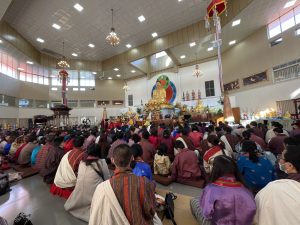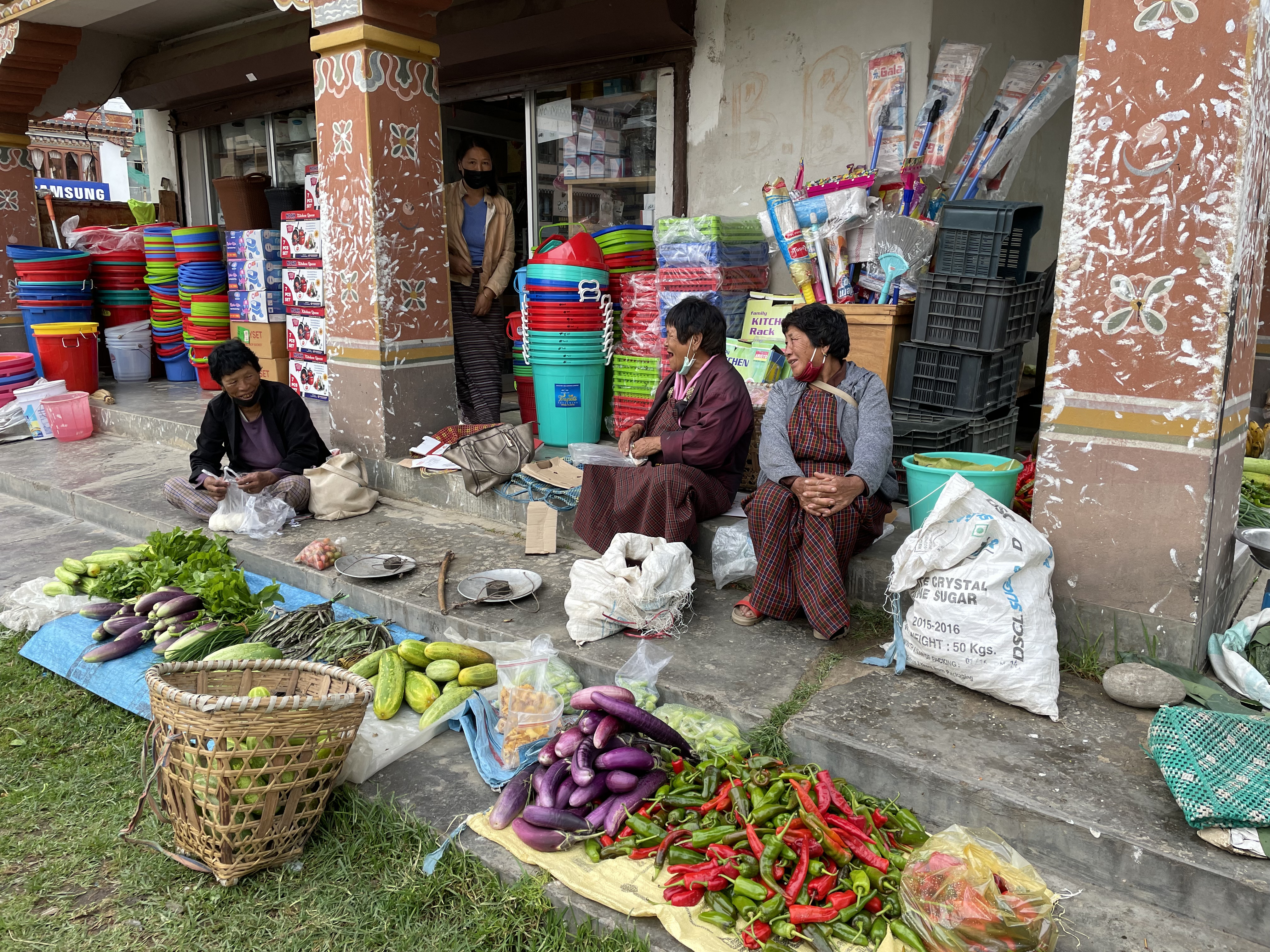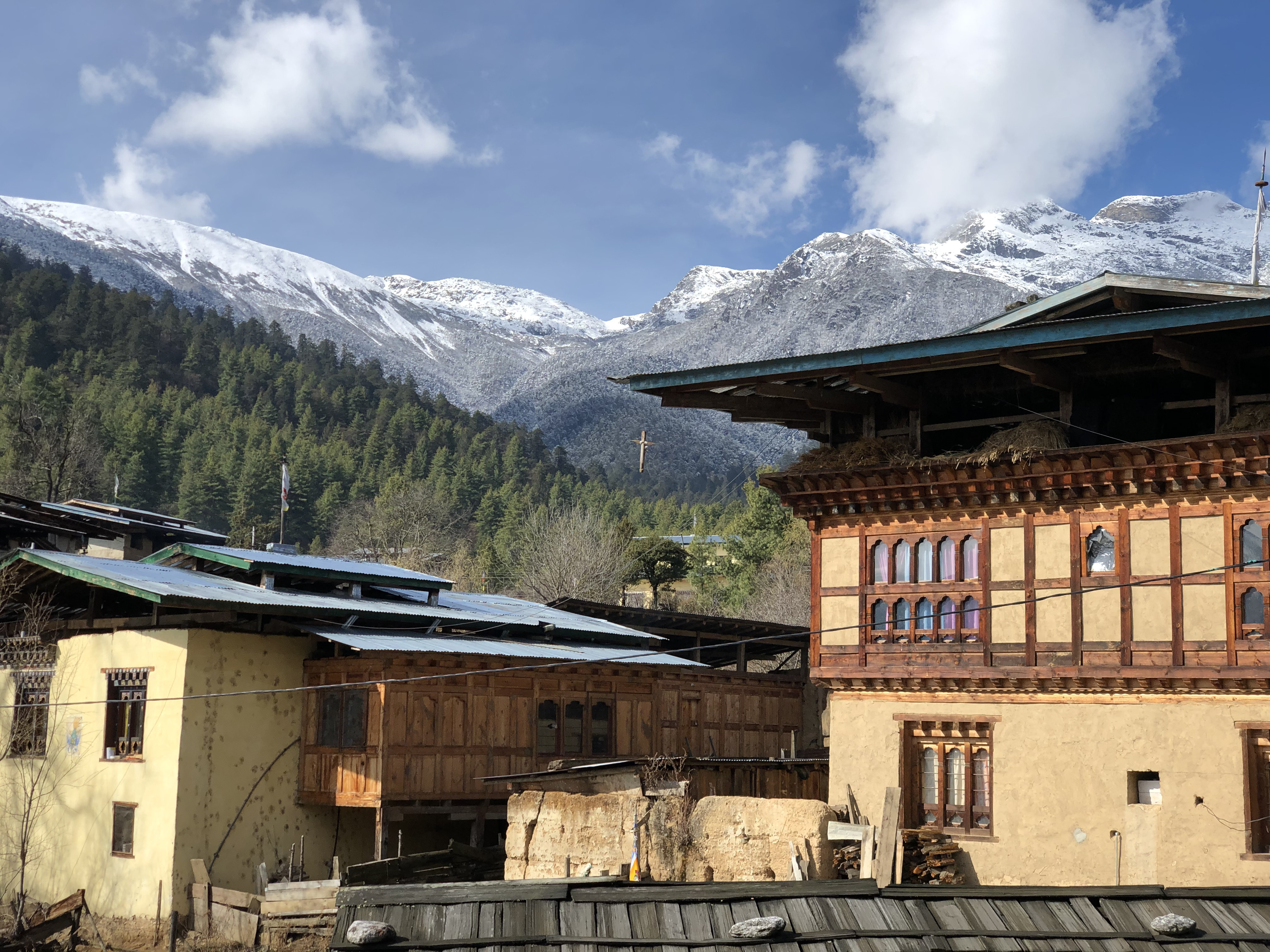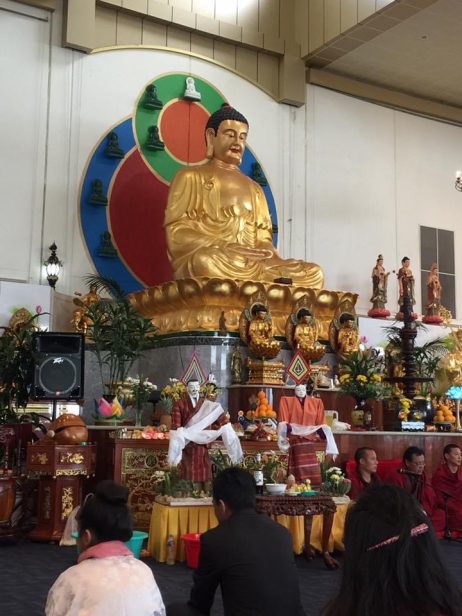Yedzin Tobgay

When then Australian Prime Minister Robert Gordon Menzies invited the Royal Government of Bhutan to observe the Colombo Plan meeting in 1962, no one predicted the initiation of diplomatic connections between the two countries would lead to the eventual development of Bhutan’s largest diaspora group.
Fast forward four decades to 2022, and the first Bhutanese film to ever be nominated for an Academy Award was Pawo C. Dorji’s “Lunana, A Yak in the Classroom.” Pawo’s story of a young, discontented Bhutanese teacher convinced of greener pastures Down Under was globally received with praise and the usual hullabaloo lamenting the loss of traditional ways of life to the machine of modernity and globalization. Unfortunately, the reality is that the story of “Lunana” is far more daunting. While aspirations of mobility and building new lives in a foreign land are presumed to only afflict the youth, attrition and retention rates in critical sectors and industries in Bhutan tell a different story.
Presently, more than 30,000 Bhutanese reside in Australia and since the opening of borders in 2022, the numbers have only continued to increase. Although movement to Australia started with human resource development aid for Bhutanese civil servants in the late 1990s and early 2000s, Australia’s growing brand as an international education destination has expanded the doors for any Bhutanese aspiring to migrate. Observers have also noted that several eminent members of Bhutan’s current ruling government earned graduate degrees in Australian universities, signaling soft power returns for the Australian government.
While the success stories of economic prosperity and mobility afforded to Bhutanese continue to fuel the domestic fervor of hopeful visa applicants, an unaccounted consequence that the Bhutanese state failed to anticipate is the unprecedented rates of attrition in its domestic medical, education, and civil service sectors.
Over the last year, over 800 civil servants across various national agencies voluntarily resigned, with an average rate of 102 resignations every month. These numbers may seem insignificant, but for a small landlocked country with a population of 750,000, each resignation signals the slow disintegration of much-needed government and bureaucratic capacity. As a welfare state that mandates universal education and healthcare for all its citizens, Bhutan was already working with limited human capital means, especially during the COVID-19 pandemic. This issue has now been exacerbated by the mass exodus of its most productive demographic group. For instance, the World Health Organization recommends a doctor-population ratio of one to 1,000 people; in Bhutan, there is one doctor for every 5,000 citizens.
Locally, plenty of apprehension and concerns attend this growing exodus. Almost every second day, there is a new story or editorial asking the same questions: Why are our youth leaving? Why are Bhutanese leaving their beautiful snow-capped mountains, their close-knit families and communities, and sometimes even leaving secure jobs or businesses to go work blue-collar jobs in a Western country? Isn’t Bhutan the country of Gross National Happiness? Why are citizens leaving their utopian Shangri-La to slog, toil, and grease the machine of capitalism?
The answer, many say, is simply “Gokap ra mindu!” (“There are no opportunities!”)

Elderly Bhutanese women selling local produce in the Paro market. Photo by Yedzin W Tobgay.
Youth disenfranchisement, unemployment, and migration are multifaceted issues that afflict every nation, but in Bhutan’s case, these issues are perceived solely as consequences of economic shortcomings. The Bhutanese reports that 99 percent of the potential migrants that it interviewed stated they sought to earn in dollars because of the rapid rate of economic mobility afforded in an economy with decent living wages. Over the years, it has not been uncommon to hear the sentiment that “rather than work in Bhutan my entire life, I’d better slog in Australia for four to five years. What I will earn in Australia in a few years, I won’t make it in my entire life here.” That refrain is mirrored by laments like “Our youth would rather serve the dollar over serving Tsa Wa Sum (king, country, and people)”; “Soon Bhutan will only be a country of the elderly and children”; “Nowadays we have more graduates registering or preparing for the International English Language Test (IELTS) than the Royal Civil Service Exams!”
It is evident that the Bhutanese state and its citizens perceive the issue to be purely economic, and the government seems reluctant to mitigate this growing exodus based on the rationale that remittances compensate for the brain drain. It is past time for the Bhutanese state to reflect and reconfigure its approach and attitude toward its youth. Bhutan is undergoing an era of immense transformation, prompted by the fifth Wangchuck Monarch decreeing national civil service and education reform through royal edicts in 2021.
The royal government of Bhutan has made lofty promises of more prosperous job markets with education, public and civil service reforms. But who are these reforms being made for, and how will the government ensure the sustainability of such reforms when it is currently struggling to manage the long-term implications of large-scale voluntary migration?
In a recent open dialogue session organized by the United Nations Development Programme, Bhutan’s Finance Secretary Dasho Kesang Deki made an unprecedented and authentic confession. In response to the question of why our youth are leaving in droves, she simply stated, “we have failed.” The novelty of such a statement stems from the fact that the Bhutanese government and bureaucracy remain notorious for their lack of accountability, systemic inefficiency, and culture of corruption and nepotism centered around a small population of elite aristocrats in Thimphu. A lack of accountability and a culture of self-censorship feed one another in a vicious cycle due to reduced social distance between members of a small population in which everyone knows everyone else.
Further, outliers that critique the state and the quality of its public service delivery are immediately scapegoated, as government offices have developed a shrewd strategy of conflating the state with the monarch, a sacred and beloved figure to Bhutanese citizens. To critique the government is thus equivalent to critiquing the King. Proponents for social improvements, societal gadflies, and concerned citizens resist making formal complaints or contrarian suggestions at the risk of being labeled a seditionist.

The Haa mountain range and a rural household in Western Bhutan. Photo by Yedzin W Tobgay.
Ironically, such a context of pervasive self-censorship impedes the incorporation of youth perspectives and expectations into government. The government’s hostility toward those who question and critique it has led youth sentiments to be expressed in an unexpected but burgeoning informal hip-hop music movement that primarily thrives on the music sharing platform SoundCloud. Glimpses into the lived experiences and attitudes of the youth convey much remorse.
Is there any work for me in this city? Give me a chance, that’s all I need.
I’m stressed out because the hardships keep on coming and now I’m on the verge of getting kicked out.
With only some loose change in my pocket, I’m tired of not having enough.
They said, “Come to the city!” I miss home and I regret coming here.
With no choice but to steal, I stand outside somebody’s house.
The rain starts falling and I can feel the cold. My mind is screaming, “Stop.”
I don’t want to be a criminal, there must be something I can do here.
I want to serve my country. If they can do it, so can I!…
Here in the city, I’ve seen the palaces of the wealthy, and here I am, barely surviving on the scraps I’ve been given.
With no other options I had to lie to survive. Waiting for opportunities to come while I sleep with my gho…
Dad, I wish I had stayed when you told me not to go.
It’s funny how life unwinds.
I came to the city after selling off my land with hope and now that I’m here, the city has no place for someone like me.
The embarrassment I felt…
Since the 1950s, Bhutan has experienced an unprecedented and accelerated period of modernization under the rule of the third king, Jigme Dorji Wangchuck. The waves of globalization have catalyzed the creation of new class distinctions in recent decades. Bhutan is far from the idealized forbidden kingdom in the mountains where a vastly agrarian society sits happily in their rice fields, content with subsistence farming, following the cyclical calendar of agriculture. Millennials and Generation Z youths belong to a digital era in which their cosmologies extend much further than that of their parents and grandparents.
The youth of Bhutan are not all national zealots of a happy kingdom but are also prone to disenfranchisement and disenchantment due to inefficiency, corruption, and the state’s weak responses to such issues. But a common underlying sentiment that can be caught in these laments is one of disappointment and regret owed to the nation. These criticisms and complaints about the circumstances faced by Bhutan’s youths are not voiced in a seditious manner, but are instead tinged with remorse: remorse over failing to succeed and contribute back to nation-building, remorse over an inability to rise as part of the fair and equitable society that they aspire for Bhutan to be. After all, remorse can only be felt if one truly cares about something.

Participants getting traditional Bhutanese lunch at an archery tournament hosted by the Druk Melbourne Archery Association. Photo courtesy of Druk Melbourne Archery Association.
Understanding Himalayan Migration
To leave one’s land is not an easy feat. Yet every day flights out of Paro International Airport are full of youths who migrate with their homes in their hearts and dried red chilies in their luggage. Works such as the recently published book “Leaving the Land” expound on the collective experience of Himalayan migrants by illustrating parallels in the dilemma of feeling attached to one’s land and family in the village and town, yet at the same time being attracted to a place that is elsewhere – one that is not yet fixed to a particular geography:
On a general level, one can say that people migrate to avail themselves of new possibilities elsewhere or to escape hardships like famine, war, or societal collapse. Yet, on the level of particular migrant situations or in the case of individual migrants, things become endlessly complex. Every migrant has his or her own story and hence, reasons to be on the move.
Migration and mobility are phenomena that cannot be evaded in today’s day and age, the Bhutanese state desperately needs to acknowledge the inevitability of migration. It is crucial to formulate strategies that proactively accommodate mobility and manage migration, because excluding those who leave mean reducing Bhutanese identity to geography, and that simply cannot suffice in the 21st century.
The authors of “Leaving the Land,” Dolly Kikon and Bengt G. Karlsson, offer a wonderful way of looking at migration – not as cutting the cord with indigenous societies, but rather a form of “stretching” indigenous life worlds to new places. Given the global trend of out-migration to urban areas, the Bhutanese state should refrain from conceiving of migration as a linear development and grant its people the opportunity to practice global citizenship.

Bhutanese effigies during a religious ceremony conducted by the Druk Melbourne Association. Photo courtesy of the Druk Melbourne Archery Association.
In an era where technology has reduced the impacts of geographical isolation, the Bhutanese diaspora has cultivated a thriving community that enacts intimate cultural practices such as cooking and eating traditional food, speaking Dzongkha and other local languages/dialects, and taking part in religious activities and festivals in a foreign land. During my own studies in Melbourne, I have rarely come across a fellow Bhutanese who does not intend to return to their place of origin once they have completed their studies or achieved financial security.
In Buddhism, time is a circular construct and so is movement. Just as apprehensions and fears grow with the departure of youths, there will come a time when there will be concerns and fears regarding the effective integration of these returning migrants. For too long, the government and people have always turned to the monarch for solutions, but it is time that all members of Bhutanese society take responsibility for the future of the country. At its core, accountability is an intimate exchange, one that cannot be honored if both parties do not maintain a mutual trust and commitment to grow together.
Both generations, those in power who currently hold offices, and the youth who will eventually inherit these positions must take responsibility and hold each other accountable in building a prosperous future for Bhutan.
No comments:
Post a Comment